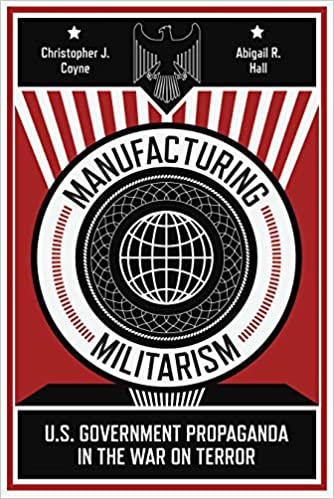Should student-athletes and those attending athletic events be forced into displays of patriotism? Arkansas Attorney General Leslie Rutledge thinks so. She recently introduced the “Star-Spangled Banner Act,” which would require each public school to play the National Anthem at the beginning of all school-sanctioned sporting events. A second piece of legislation, the “Moment of Silence Act” would require schools to observe a moment of silence every day following the Pledge of Allegiance.
When explaining why she introduced these bills, Ms. Rutledge said, “Cancel culture is trying to stamp out the foundation of our republic despite the generations of Americans…who have fought and died for our country.”
While the argument can be made that children should learn to cherish founding principles,  the AG’s policy proposals wouldn’t accomplish this. In fact, they’d do precisely the opposite by conflating blind love of country with true patriotism. I’d call it all a star-spangled disaster.
the AG’s policy proposals wouldn’t accomplish this. In fact, they’d do precisely the opposite by conflating blind love of country with true patriotism. I’d call it all a star-spangled disaster.
Ms. Rutledge isn’t the only lawmaker with such an idea. Wisconsin State Senator Rob Mentzer recently introduced a similar bill in his state. If passed, the bill would make it illegal for any sports venue that receives taxpayer money to skip the Anthem.
O say can you see the despotism? Forced participation in the “Land of the Free!”
These proposed pieces of legislation would do precisely nothing to uphold “American” values. They would, however, contribute to a long history of government officials using sports to garner support for U.S. foreign policy and foster a broader culture of militarism.
Just look at professional sports franchises. For the last twenty years the Department of Defense has used sports to generate support for the perpetual war on terror. From surprise homecomings, to on-field enlistment ceremonies, to various military members singing “God Bless America,” to flyovers, the National Football League, National Hockey League, and Major League Baseball have become well known for their supposed patriotism.
But draping the flag over their shoulders is the Department of Defense. For example, between 2012 and 2015 alone, more than half of the National Football League’s 32 teams received over $6 million in taxpayer money to engage in various patriotic displays. This propaganda, referred to as “paid patriotism” is pervasive, purposeful, and effective.
Individuals like AG Rutledge and Senator Mentzer now look to push the connections between the military and sports into schools. This is problematic for several reasons.
By forcing displays of patriotism into sporting events and equating such activities as support for rank-and-file military members, policymakers look to transpose the uncomplicated and ideologically neutral ideas of sports into politics.
Singing the National Anthem, showing excitement for militaristic pomp and circumstance is equated with being patriotic, supporting military personnel, and being an all around “good American.” Showing skepticism for such displays, questioning their inclusion, or otherwise not engaging in the ceremonies is a one-way ticket to harsh criticism. Refuse to stand for military members at an NHL game? How dare you not support the troops? Question why the Anthem is played at all at an MLB game? How can you be so un-American as to question the National Anthem?
Those interested in seeing how intense these debates become need look further than how individuals and the NFL treated former San Francisco 49ers quarterback Colin Kaepernick. His refusal to participate in the Anthem ritual cost him his career and set off a national firestorm.
By conflating and blurring the lines between sports, politics, and the military, policymakers attempt to collapse the overwhelming intricacies of international and domestic policy issues into something as simple as a basketball game. Winning or losing in the war on terror, for instance, is framed the same way as winning or losing an athletic contest. There is no appreciation for complexity, no debate over why one side should “win” and the other side should “lose.”
Ms. Rutledge suggests her bill would honor and respect those who have fought for our country and preserve the foundations of our society. I would suggest an alternative. Let’s instead teach our children to be active and engage citizens. This includes questioning the decisions of our policymakers—especially the actions of the U.S. military. We should teach them to think critically about what their government does, push them to engage with complicated issues, and to ask hard questions.
Far from preserving American values, forced displays of patriotism is about as un-American as it gets.